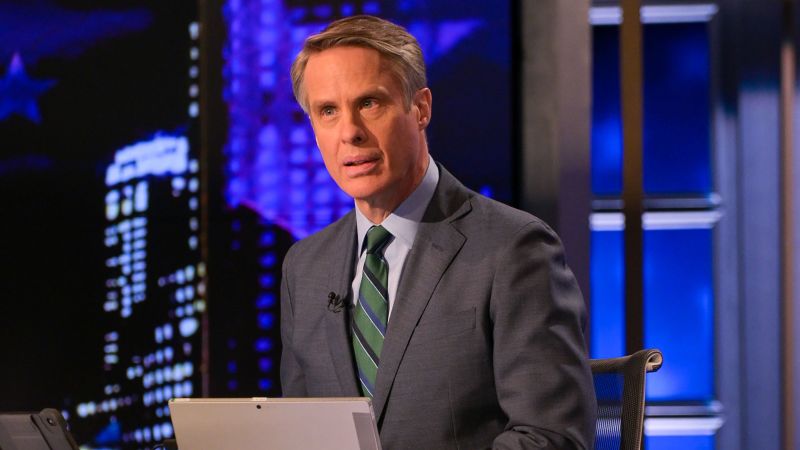Terry Moran, the former ABC News correspondent, recently made headlines as he publicly addressed the circumstances surrounding his departure from the network. Speaking out for the first time since his controversial social media post, Moran expressed a clear lack of remorse regarding his comments aimed at President Donald Trump and deputy chief of staff Stephen Miller. The post, which he later deleted, contained sharp criticisms of their character, labeling Miller as a “world-class hater” and suggesting that both individuals thrive on a culture of hatred and glorification.
In an interview with The New York Times, Moran firmly stated, “I don’t think you should ever regret telling the truth. And I don’t.” Rather than viewing his late-night post as a reckless outburst, he made it clear that his choice of words was intentional and calculated. Moran’s comments revealed his underlying conviction, as he asserted, “I wrote it because I thought it was true.” His reflections on morality and truth were echoed during a live-streamed session with Tim Miller, further emphasizing that he felt compelled to speak out about what he perceives as a toxic political environment.
Moran’s six-to-month contract termination followed significant backlash, triggering reactions from colleagues at ABC News and officials within the Trump administration, notably including Miller and Vice President JD Vance. Initially suspended by the network, Moran faced a swift decision from ABC to terminate his contract entirely just days later. Reflecting on the situation, he remarked, “From my perspective, it looked like a business decision. I became bad business, it feels like.” Notably, Moran asserted that the decision to cut ties was not only unexpected but also an abandonment of previous commitments, claiming there was an “oral agreement” for a contract renewal that ABC decided to disregard.
A seasoned journalist by any measure, Moran joined ABC News in 1997. Over the years, he has held various prestigious positions, including chief foreign correspondent, chief White House correspondent, and co-anchor of “Nightline.” Despite being known for refraining from publicly sharing his personal opinions, Moran self-identified as a “proud centrist,” which added another layer to the complexity of his recent actions. The sudden fallout from his social media engagement brought to the forefront ongoing debates regarding journalists’ roles, objectivity, and freedom of expression.
Moran openly challenged the mainstream narrative that journalists should remain objective, asserting that true journalism demands fairness and accuracy rather than emotionless detachment. “There is no Mount Olympus of objectivity where a mandarin class of wise people have no feelings about their society,” he stated. By this, he underscored that journalists are also human beings with backgrounds, beliefs, and emotions that inevitably shape their reporting.
After his departure from ABC News, Moran quickly transitioned to launching his own Substack newsletter. He joined the growing trend of journalists who have opted for independent reporting and analysis, bypassing traditional media structures. Significantly, his Substack has attracted over 90,000 subscribers, illustrating a considerable appetite for his insights and viewpoints. This pivot towards independence signals a changing landscape in journalism, where traditional media institutions face competition from more direct, personal channels of communication and analysis.
Moran’s confidence in stepping away from traditional media was palpable as he noted to The Bulwark that “we are free to speak our minds here.” His experience thus resonates not only as a individual account of professional turmoil but also serves as a broader commentary on the evolving role of journalists in a polarized political climate. His situation encapsulates the ongoing tensions between maintaining journalistic integrity and the pressures exerted by powerful political figures and institutions. As Moran continues on his independent path, his story provides both insight and inspiration for fellow journalists navigating similar waters in today’s media landscape.



